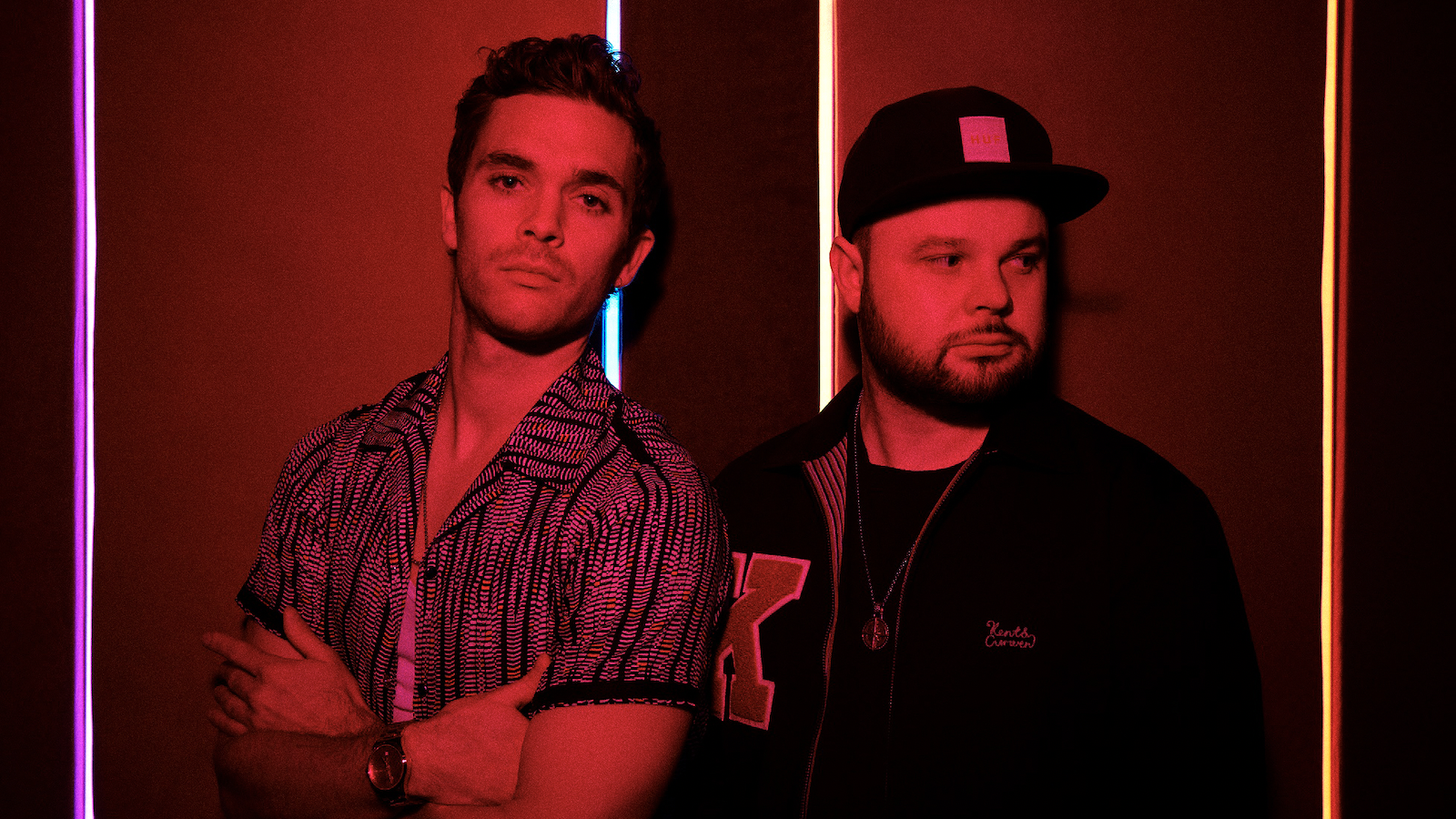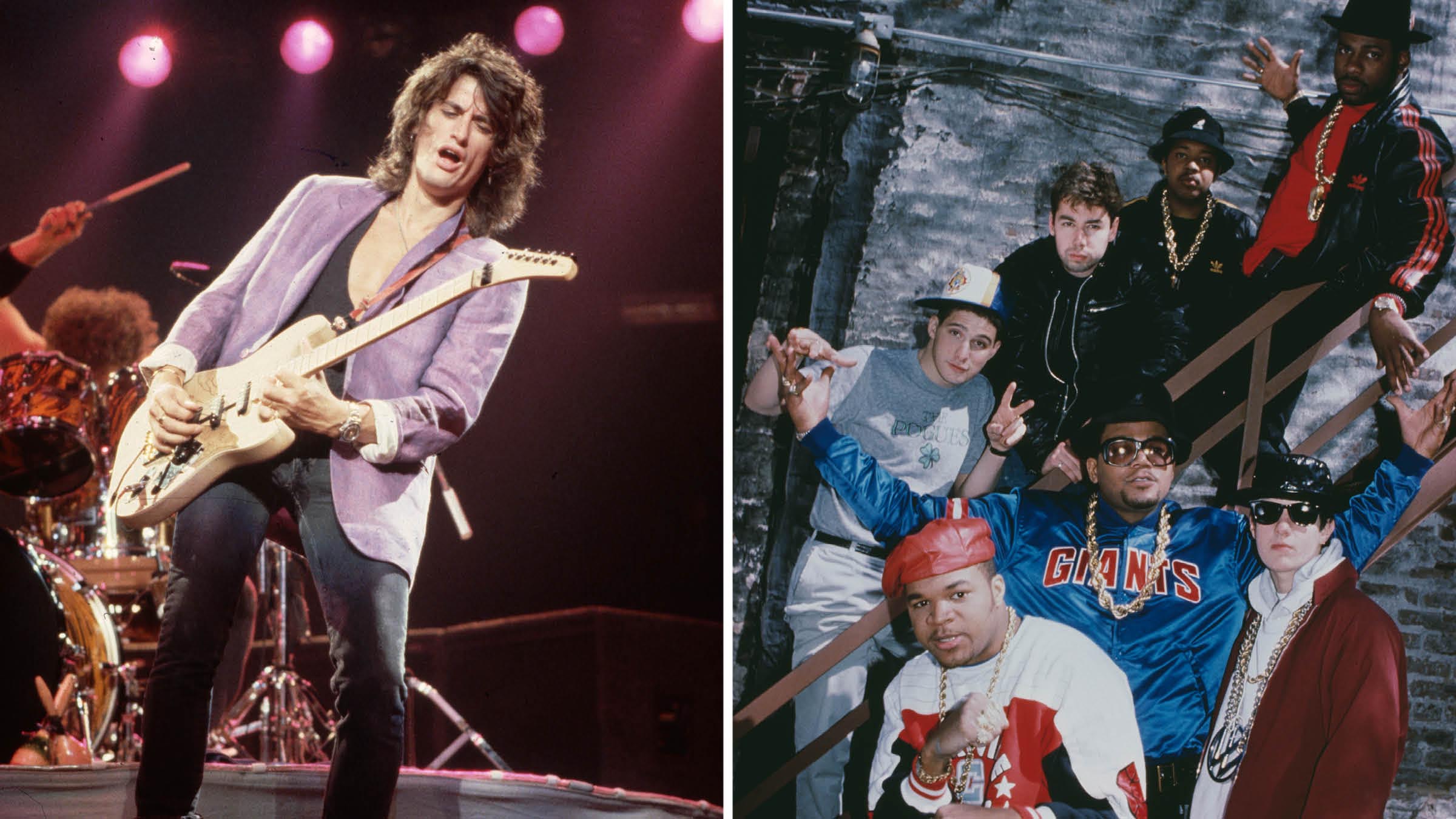Royal Blood’s Mike Kerr: “We wanted Typhoons to feel like a debut record”
For album #3, Royal Blood shed the limitations of a two-piece to deliver a hard-out epic of explosive punk, groove-laden soul and rip-roaring dance-rock

All the latest guitar news, interviews, lessons, reviews, deals and more, direct to your inbox!
You are now subscribed
Your newsletter sign-up was successful
The human body is intrinsically cruel: it’s the tastiest treats that do the worst damage to our teeth, the most exhilarating activities that hasten our decay, and the most euphonious sounds – big, belting rock ’n’ roll riffs – that pose the most risk to our eardrums. Listening to Royal Blood with our headphones cranked to their absolute limits may do wondrous things for our serotonin transporters, but it certainly isn’t healthy for us in the long run. But oh well – you only live once, right?
The first two Royal Blood albums were all about getting heads thrashing and fists pumping – they’re vicious, ultra kinetic nuggets of garage-tinged punk that can turn even the most passive of crowd-dwellers into a bonafide king of the mosh. Especially for a two-piece – one without a proper guitar in their setup, to boot – the Brits did a scary good job delivering volume by more than one definition. And with their third full-length effort, Typhoons, they’ve gone even bigger, boomier and more banger-driven.
Influenced by EDM stalwarts like Daft Punk and Justice, the 11-tracker is tailor-made for the dancefloor, studded with enormous grooves, nacreous melodies and hooks that outright demand you chant along. Ironically given the duo can’t get to a stage right now – at least not before a crowd on their feet and all crammed into the same sweaty mosh pit – it’s a emphatically live-feeling energy; the inimitable spirit of Royal Blood in concert is captured perfectly, injected with a newfound luminescence courtesy of the dancier influences.
As he and drummer Ben Thatcher gear up for the live show to make its desperately needed comeback, singer and bassist Mike Kerr sat down with Australian Guitar to riff on the ambitious artistic evolution that makes the Royal Blood of 2021 the very best Royal Blood yet.
This record is so different to what a lot of people have come to expect from Royal Blood; were you keen to really shake things up on this record?
Definitely. I think we were looking to kind of create that thing for ourselves, y’know? We wanted it to feel like a debut record, in a sense. I think this is the first time we’ve really evolved the band’s sound, to be honest with you. This is probably the first time we’ve ever really surprised people.
I think the most obvious new thing is just how dance-y this record is. Where did that influence come from?
I think that’s always been in our DNA, really. Once we kind of got on that tip and making songs that had that feel feel to them, it just felt like the natural direction for us to take this record in. I don’t know, I love the idea of playing really heavy riffs over really danceable beats – it’s such an exhilarating combination, and it just became addictive in the studio. And we have 20 songs that we’ve written before that aren’t like that at all – why go back and tread on that ground when we can move forward and play in some new ways?
It’s kind of ironic in way – any shows you can do are all seated, but all of these songs seem so perfectly suited for the dancefloor; you’ve really captured the energy of a Royal Blood concert. Is that something you wanted to really dial in on?
Yeah, but I think there always would’ve been that frustration with not being able to play a Royal Blood show. Our records have always felt almost like the homework we needed to do so that we could go out and play. And I think this album is very much like [a show] – it’s got a real sense of celebration to it, and a real excitement. Playing these songs live has been a real party. We can’t wait to get out there to the masses. Those days are coming, certainly, it’s just taking a little longer than we were hoping.
All the latest guitar news, interviews, lessons, reviews, deals and more, direct to your inbox!
What songs are you most excited to play?
Oh man, all of them! “Limbo” is a track that we were rehearsing today, actually, and it just feels so monstrous live. It so epic, it kind of feels like it has to be our closer now – there’s nothing bigger-sounding that we have, I don’t think. It’s a good feeling, man. These songs are definitely poppier in ways, and sort of tighter on the drums, but they probably have the most intricate playing that we’ve ever done. I think we both pushed ourselves incredibly hard with our abilities – which is a great feeling! At the end of an album cycle, you can usually do it all with your eyes closed. It’s really good to feel terrified again.
How did this album take you out of your comfort zone as a player?
I think everything was just so much tighter and more closed-off, and so much more groove-oriented. It took me out of my comfort zone in the sense that it’s a totally different way of playing – it’s a lot more rhythmically intricate, so singing and doing that at the same time, yeah, I’m hanging on by a thread at the minute [laughs]. It’s so difficult, but it’s a lot of fun. And I think because the beats are more closed-off and dancier, there’s like… Well, there was nowhere for me to hide before, but now I’m completely naked. I basically can’t f*** up at all anymore.
Does that make the show more exciting, or liberating even, when you pull off a sick riff and a killer hook in the same punch?
Definitely, yeah. Playing these songs live, I feel like we’re doing the greatest magic trick we’ve ever seen each other do. It’s an amazing feeling. I think it was Josh Homme that said, “It’s like doing the world’s largest heist with the three greatest bank robbers.” And that’s how I kind of feel right now – like, “Oh my God, we’re actually doing it! Okay!”
What was your recording setup like?
I essentially did everything on my short-scale Fender Jaguar, which is my go-to bass. I actually feel sorry for it – it’s always getting ripped in and out of tunings to suit whatever I’m trying to come up with at the time. And then to be honest with you, for songs like “Typhoons”, I didn’t really use any pedals. I just went straight into this tiny little practise amp, and then straight from that into Logic.
Do you feel like that rawness and bare-bones feel aides in capturing the live energy of Royal Blood?
Yeah, I think so. I didn’t intend for the master recording to be what I was using at the time. I have such a huge bass sound that it’s easy for me to get caught up in the sonics of it. So for me it was like, if I simplify my sound, then it puts more pressure on the composition of the part. And that pushed me to write better parts, y’know, rather than just play three notes and make them sound huge.
What makes that Jag so special?
It doesn’t even feel like an instrument. It feels like a toy. It’s so small and light. I don’t really like anything to feel serious or professional – I mean, don’t get me wrong, it’s very well-made, and I didn’t pay for it but it’s probably really expensive. But it’s what I sit around the house playing, it’s what I play shows with, it’s got my blood, sweat and tears all over it… It’s a part of me. And it hasn’t really failed me, either. There’s been times where I’ve looked to it desperately for ideas, and it’s always given me the answers.

Ellie Robinson is an Australian writer, editor and dog enthusiast with a keen ear for pop-rock and a keen tongue for actual Pop Rocks. Her bylines include music rag staples like NME, BLUNT, Mixdown and, of course, Australian Guitar (where she also serves as Editor-at-Large), but also less expected fare like TV Soap and Snowboarding Australia. Her go-to guitar is a Fender Player Tele, which, controversially, she only picked up after she'd joined the team at Australian Guitar. Before then, Ellie was a keyboardist – thankfully, the AG crew helped her see the light…
